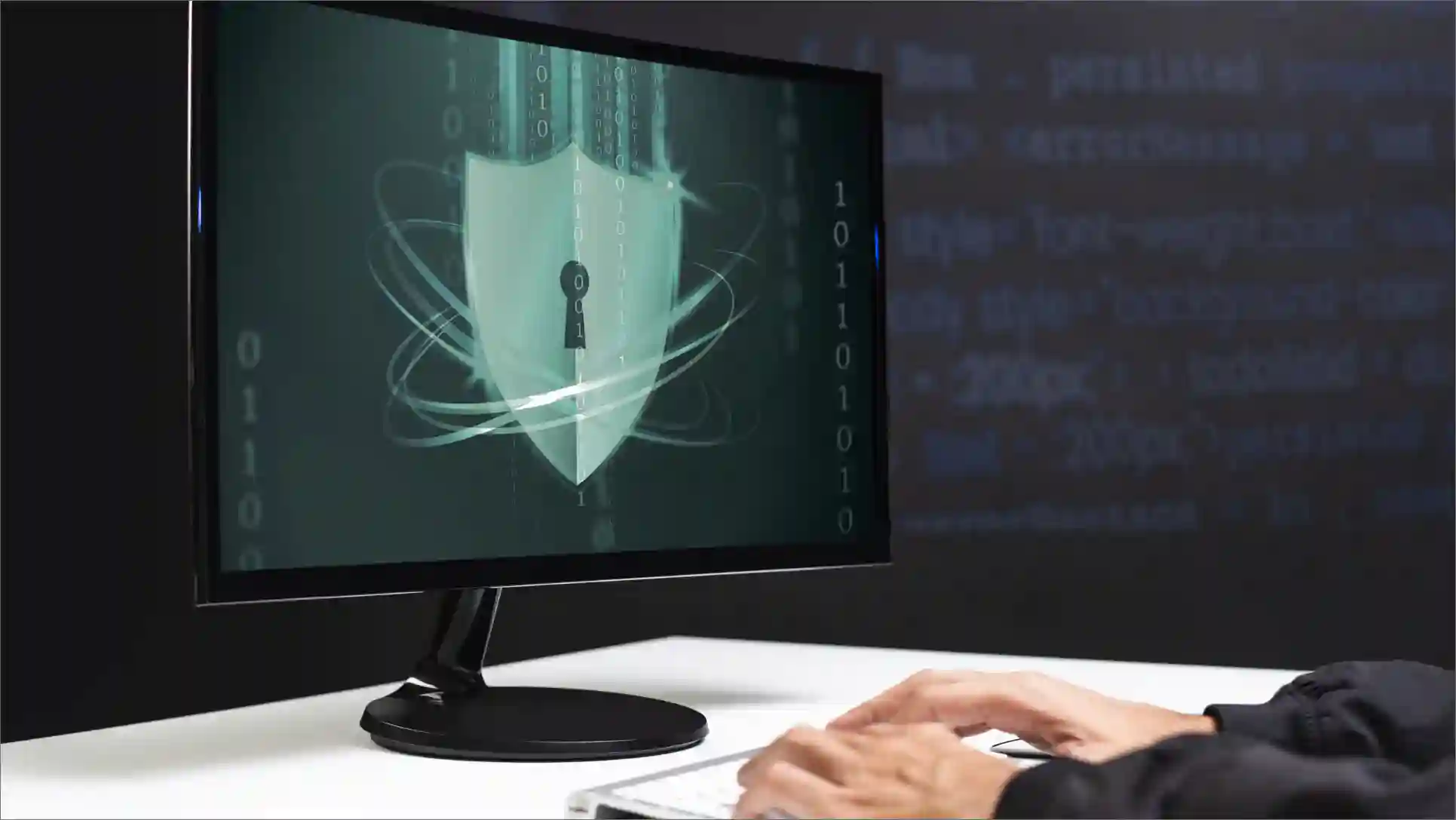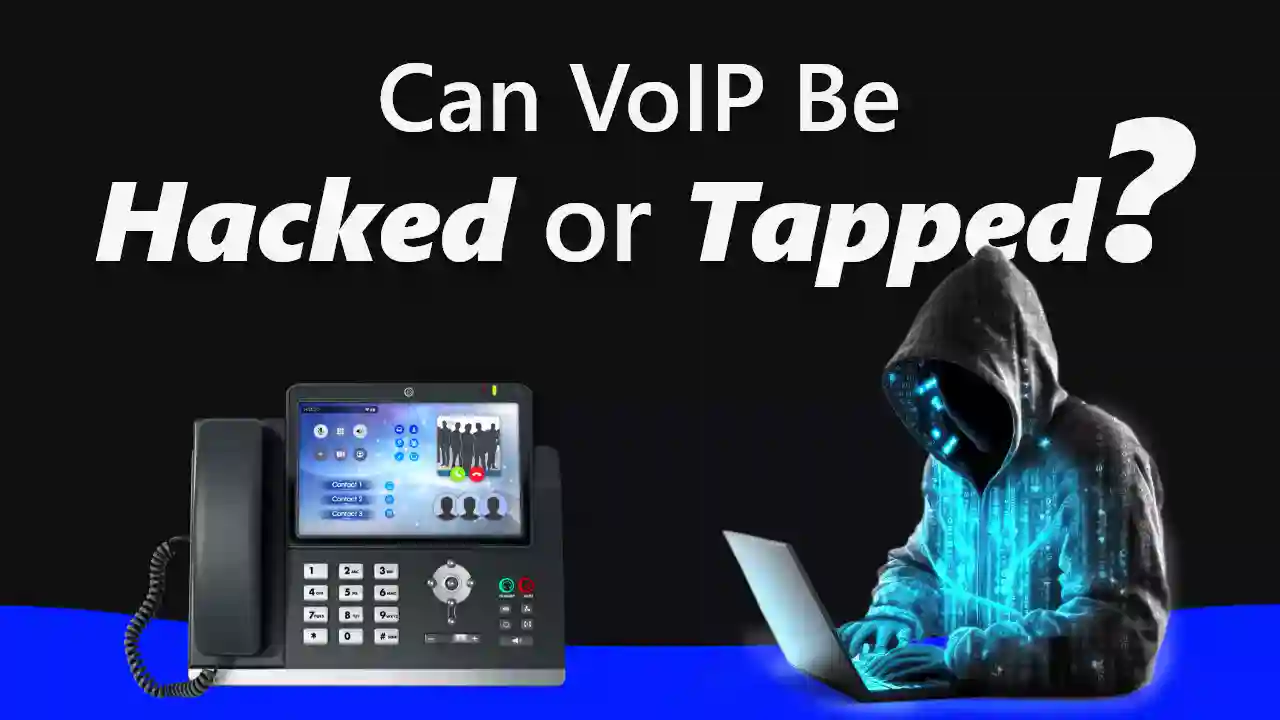Like all other phone systems VoIP phones can be hacked or tapped. As they run over the internet cybercriminals can exploit them to harm your business. However, different measures can be taken for making secure VoIP calls.
VoIP phone systems are distinct from traditional setups because they do not require extensive copper wiring throughout an office. Instead, these systems rely on virtual connections established through an internet connection. However, the reliance on cloud hosting can lead to significant security concerns, particularly given the prevalence of hacking attempts. The proliferation of the Internet of Things has further complicated matters, making it difficult to verify caller identities and increasing the likelihood of data breaches resulting from social engineering tactics.
A small business stands to suffer significant financial losses if targeted by hackers, making it crucial to take proactive measures to prevent VoIP fraud. Implementing a few straightforward precautions can greatly reduce the likelihood of such incidents.
Ensuring that key settings on phones, routers, and the business phone system are secure can help prevent unauthorized access and protect against the drain of financial resources, employee time, and productivity.
Here in this article, we will describe VoIP hacking, its types and how you can prevent your VoIP phone systems from being hacked.
What Is VoIP Hacking?
‘VoIP hacking’ refers to any malicious attack hackers use to gain unauthorized access or steal data from a business’s phone system. Typically, cybercriminals aim to eavesdrop on calls, obtain sensitive information about the company and its clients, and even make international calls that result in substantial charges.
These attacks on IP telephony systems often occur when a business insider unknowingly provides information to scammers, enabling them to take control of the VoIP phone system. Once breached, the phone system can serve as a gateway for further criminal activities, such as impersonating the company, charging credit cards, and accessing sensitive client information.
Remaining up-to-date on potential threats to business phone systems and reviewing strategies to secure communications with your provider is crucial to maintaining the integrity of your system.
Types Of VoIP Hacking

VoIP systems are vulnerable to security risks due to their reliance on the internet and distinct setup compared to traditional telephone systems.
As such, it is essential to be aware of the following five types of VoIP hacking:
1. Unauthorised Use
In this type of phone system attack, cybercriminals exploit your company’s phone network to make fraudulent calls posing as your organization. By using auto-dialing software and robocalls with your IP telephony system, the criminals can reach out to unsuspecting recipients who think it’s your company calling.
Once the victims pick up the phone, they receive a pre-recorded message that directs them to take specific actions, such as revealing sensitive information like credit card details, under the pretext of account verification. However, in reality, the attackers are using your phone line to carry out their nefarious activities.
The consequences of this hacking can be severe, as hackers can access sensitive information, leading to financial loss and reputational damage for your business. Moreover, since the recipient sees your caller ID, the attackers can easily impersonate your company, making it even more challenging to detect fraud.
If you use a DIY VoIP phone setup, this hacking can go unnoticed for a long time. However, you can take preventive measures by monitoring your call logs regularly and setting up alerts if you reach a specific limit. Doing so can catch any suspicious activity and stop the attackers in their tracks.
2. Spoofing
Although most people rely on their caller ID to identify incoming calls, it is not always a foolproof method of determining the call’s origin.
Hackers can exploit this trust by using fake caller IDs to deceive you into thinking the call comes from a known or local number. It can make it easier for attackers to leverage social engineering tactics and manipulate your staff into divulging sensitive information.
Employees often priorities calls from familiar or trusted numbers, which can put them at risk of inadvertently sharing confidential details if the caller ID appears to be from a reputable source, such as your VoIP provider. Unfortunately, sharing such critical information with hackers can give them access to your company’s cloud-based phone system, causing significant damage to your business.
Therefore, it is essential to educate your staff on the dangers of blindly trusting caller IDs and to establish protocols for verifying the identity of incoming calls. Doing so can prevent cybercriminals from exploiting this vulnerability and keep your business safe from harm.
3. Toll Fraud
Hackers can commit toll fraud by making expensive international calls and charging the bills to your company’s account. Cybercriminals may use phishing scams to target admins and system users to gain unauthorized access to your VoIP system.
One way they can achieve this is by leaving a voicemail for a department within your organization, asking them to confirm confidential information such as bank details. If an employee falls for the ruse and provides the verification codes, such as the IP address and phone system password, the attackers can gain access to your system.
Once the hackers have obtained the necessary information, they can hack into your internet-based phone system. From there, they can make unauthorized use of your VoIP service to make long-distance calls, resulting in exorbitant bills charged to your account.
To prevent toll fraud, educating your staff on how to identify and report phishing scams is crucial. Additionally, you should implement robust security measures, such as multi-factor authentication and regular system monitoring, to detect and prevent unauthorized access to your VoIP system. Taking these precautions can safeguard your business from this costly cybercrime.
4. Eavesdropping
If your business accepts payments over the phone or requires customers to provide personal information during phone calls, it is crucial to prevent eavesdropping. This cyber attack occurs when hackers listen to your real-time business phone conversations or recordings, such as voicemails.
Eavesdropping is possible only when the connection is unencrypted or the local network is breached. Insecure Wi-Fi networks that lack Transport Layer Security (TLS) and Real-time Transport Protocol (SRTP) are particularly vulnerable to eavesdropping attacks, as they allow hackers to monitor the network and intercept sensitive information.
Hackers can gather information on your organization and your customers by eavesdropping on your business phone calls. They can access every interaction your business has had, potentially exposing sensitive data and putting your business at risk.
It is crucial to use secure communication protocols such as TLS and SRTP to encrypt your business phone calls and mitigate the risk of eavesdropping. Additionally, you should educate your employees on the dangers of insecure Wi-Fi networks and establish protocols for identifying and reporting suspicious activity on your phone lines. Taking these precautions can keep your business and customers safe from eavesdropping attacks.
5. Social Engineering
Social engineering is a hacking technique that relies on human interaction rather than exploiting VoIP system vulnerabilities. Due to their friendly nature, employees may unknowingly divulge information that attackers can use for future crimes.
One contributing factor to the success of social engineering attacks is employees’ lack of awareness and education on the risks of fraudulent phone calls and caller ID spoofing.
How Can You That Your VoIP Phone Is Hacked

While VoIP phone systems offer cost-saving benefits of up to 80%, there has been a recent surge in attempts to hack these networks. Research shows that corporate clients face over 40,000 VoIP/SIP attacks daily.
There are three indications that your VoIP system may have been compromised:
- A sudden rise in your phone bill.
- Unknown numbers in your VoIP call history.
- Increase in calls outside your working hours.
How Can You Protect Your VoIP Phone System From Hacking?
VoIP hacking can lead to significant monetary losses for your business, damage your reputation and waste time trying to recover. However, there are steps you can take to prevent or mitigate the majority of VoIP vulnerabilities.
Here we will describe some strategies that help you prevent VoIP hacking:
1. Choose The Right VoIP Provider
The security of your phone system largely depends on the service provider you choose. A provider with weak security measures makes it easier for hackers to breach your phone network and access sensitive information.
Before signing up with any VoIP service provider, checking their security policy is important. Here are some things you must look for:
- The provider should clearly outline their commitment to network security and the measures they have in place to ensure it.
- They should have a process for reporting vulnerabilities and a plan of action in case of a hack.
- The provider should have relevant accreditations demonstrating their commitment to security best practices.
- They should have a responsible security disclosure program in place.
- The provider should demonstrate good security practices.
Ask your provider about their certifications and accreditations, and don’t hesitate to switch to a different provider if they cannot provide this information.
2. Control Admin Access
Having administrative rights to your VoIP infrastructure gives a person control over everything in your internet-based phone system. With admin permissions, they can set up new phone lines, manage bills, join conference calls, and access all data, potentially leading to harmful intrusions.
Selecting the staff members with admin permissions is crucial, only giving access to those who truly need it. The fewer employees with administrator access, the better, as this reduces the risk of social engineering attacks.
Mistakes can happen, so limiting permissions for staff members can help minimize the impact of any errors that may occur.
3. Use VPN
Remote staff who use phones to communicate with colleagues and clients are at risk of VoIP hacking. To protect against phone system attacks, all employees must install VPN on their work machines, smartphones, and softphones.
VPN strengthens the connection between their devices and your VoIP phone system, providing the same level of security as a strong office network.
4. Monitor Call Logs
Analyzing your call log can reveal each call’s time, number, and location, allowing you to track your regular call activity and detect any anomalies that may indicate a hack.
Regularly reviewing your VoIP access log can help identify intrusions, such as unauthorized sign-ins from strange IP addresses or administrative access outside of work hours.
5. Use Two Factor Authorization
It is not enough to rely on strong passwords to enhance VoIP security and prevent hacking attempts on your phone system. Users should implement two-factor authentication for an additional layer of protection.
It can be done using an authenticator app, verbalizing a secret code, or fingerprint identification. These measures ensure that even if a hacker obtains the password, they won’t be able to access the system without the second-step credentials.
6. Regularly Update Your VoIP System
Failing to update your VoIP operating systems and firmware can leave your phone system vulnerable to avoidable hacking. Regular updates can address any weaknesses software developers identify, so ensuring your business phone operating System and firmware are up-to-date is essential.
Fortunately, most updates can be done by your staff, and the systems often have features that prompt or schedule updates without interrupting work hours. However, if your staff is unable to update the system or devices, don’t hesitate to seek assistance from your provider.
Conclusion - VoIP Be Hacked or Tapped
VoIP is a communication system that uses the internet to transmit signals. Thus, there are chances of security breaches. However, you can protect your VoIP system from hacking by using measures such as strong passwords, keeping your software up-to-date, using encryption, implementing access controls, regularly monitoring call logs, educating your staff, and using a trusted VoIP provider.
By taking these preventative measures, you can significantly reduce the risk of VoIP hacking and keep your business safe from harm. Remember to stay vigilant and keep up-to-date with the latest security threats to ensure your VoIP system remains secure.




